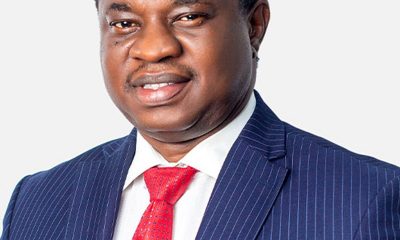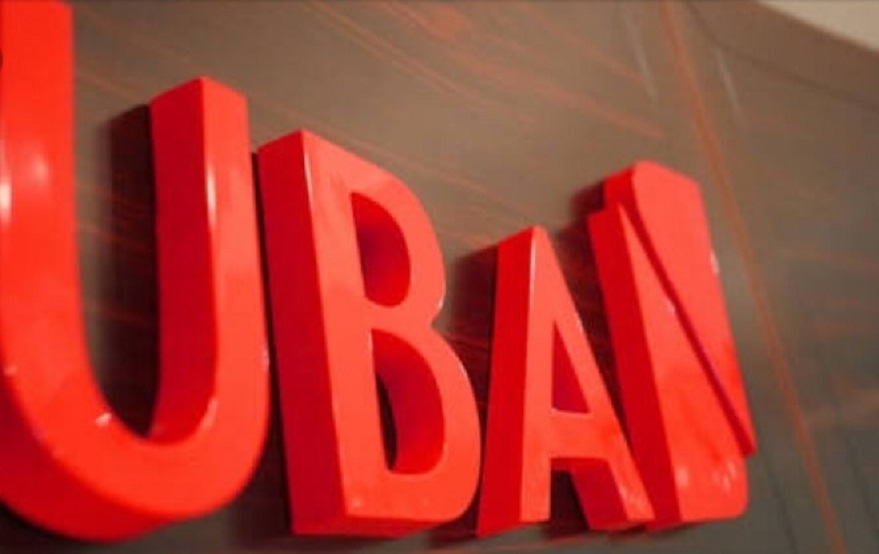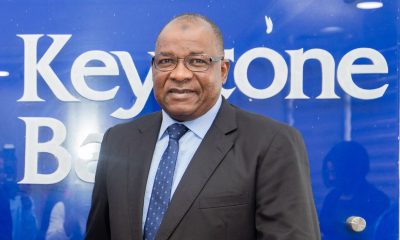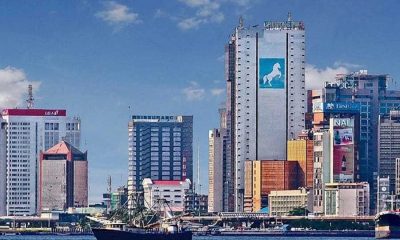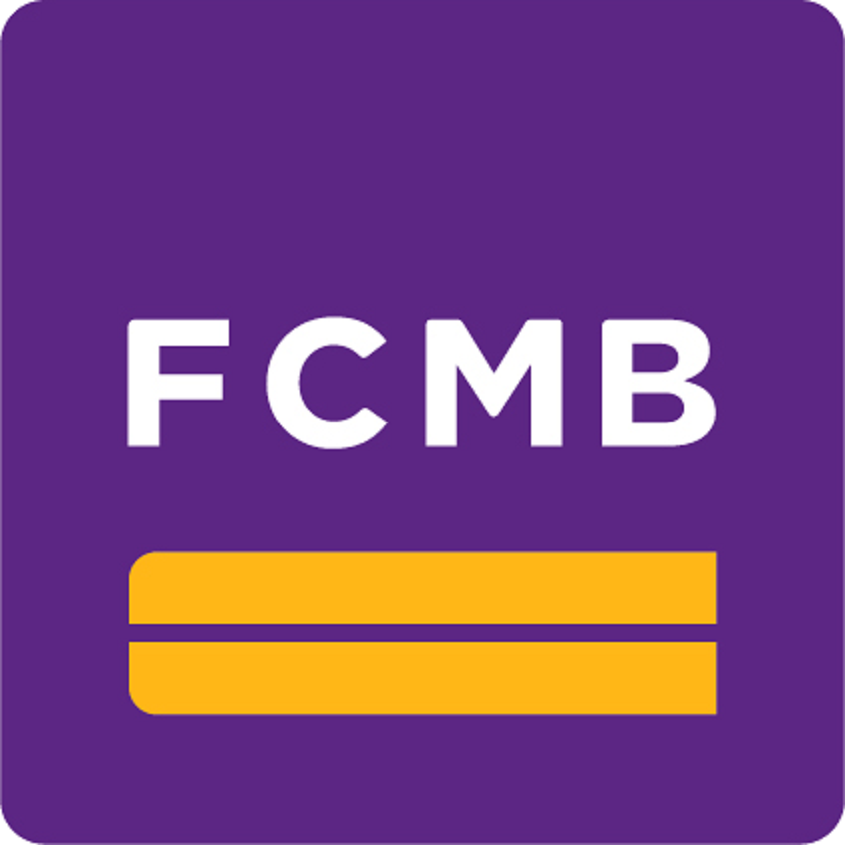Banking
S&P Affirms UBA’s ‘B/B’ Ratings with Stable Outlook
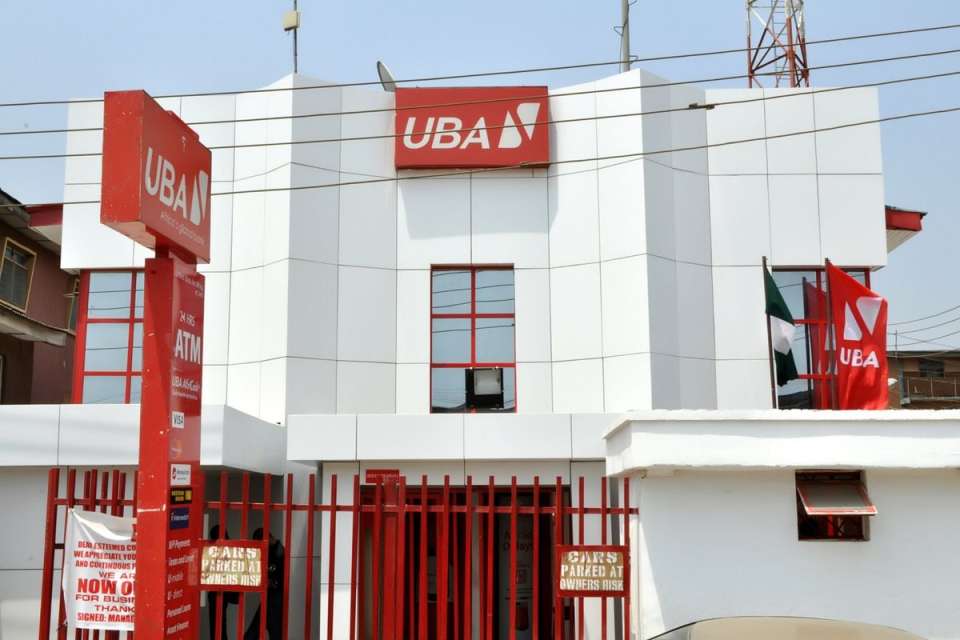
By Modupe Gbadeyanka
Leading rating firm in the world, S&P Global Ratings, has announced affirming its ‘B/B’ and ‘ngBBB/ngA-2’ ratings on United Bank of Africa (UBA) Plc.
A statement issued by the rating agency on Monday disclosed that it believes the tier-1 lender in Nigeria will continue to maintain sound earnings and asset quality over the next 12 months, despite the sluggish economy in its operating environment a and the high economic risk in other parts of Africa where the bank operates.
Also in the statement, S&P affirmed its stable outlook on the financial institution, explaining that the “stable outlook reflects that on Nigeria and our expectation that the group’s financial profile will remain broadly stable in the next 12 months.”
In its earnings for third quarter of this year, the lender increased its profit after tax to N61 billion from N49.5 billion in Q3 of 2016, while its gross earnings closed at N334 billion compared with N265.5 billion 12 months ago.
S&P Global Ratings, in its statement yesterday, noted that it affirmed its long- and short-term Nigeria national scale ratings on UBA at ‘ngBBB/ngA-2’.
“The affirmation reflects our view that the group will maintain its top-tier competitive position in the Nigerian banking sector. UBA benefits from a good franchise in the corporate and retail segments in Nigeria and increasing geographic diversification. Overall, we think the group has an adequate business position.
“Furthermore, we believe that the group will display relatively stable asset quality and good earnings generation over the next 12 months.
“We assess the group’s capital and earnings as moderate under our risk-adjusted capital (RAC) framework. We estimate UBA’s RAC ratio (before adjustments for diversification) at 5.2% for year-end 2016. We project that the RAC ratio will remain broadly stable over the next 12 months on the back of the group’s good earning capacity and expected stable cost of risk.
“Our forecast assumptions include loan growth of around 20% (factoring in the expected depreciation of the Nigerian naira), stable interest margins, cost control, and moderate dividend distribution. On June 30, 2017, UBA’s capital adequacy ratio was 19.7%, which is well above the regulatory minimum of 15%, and we believe it will remain stable over the next 12 months.
“We assess UBA’s risk position as adequate, which reflects our expectation that the group will exhibit broadly stable asset quality in the next 12 months. The group’s cost of risk increased to 2.1% in 2016 compared with 0.5% in 2015, before declining to 1.2% at end-June 2017.
“This ratio compares well with the sector average. However, nonperforming loans (NPLs; loans overdue by 90 days or more) ratio increased to 4.2% at end-June from 3.9% at end-2016 (1.7% at year-end 2015) and was hit hard by the foreign currency shortages, which mainly affected the general commerce and oil and gas trading companies.
“The Central Bank of Nigeria allowed banks to write-off fully provisioned NPLs the same year, without prejudice to the prudential guideline that requires banks to retain fully provisioned NPLs for one year before write-off. This was aimed at avoiding accumulation of NPLs, since banks were expected to record additional provisions in the context of the naira devaluation in 2016. As a result, UBA’s NPL coverage by provisions dropped to 60.1% at end-June 2017 from 83.3% at end-2016, after reaching about 100% on Sept. 30, 2016.
“NPLs outside Nigeria accounted for 60% of the group’s total NPLs. We anticipate that credit losses will decline to about 1% in 2017-2018, while the NPL ratio will stabilize at around 4%-5% over the same period. Similar to other Nigerian banking groups, the UBA group extends loans in U.S. dollars (about 35% of total loans at end-2016), but this risk appears to be mitigated by receivables in the same foreign currency.
“We consider the group’s funding to be above average and its liquidity to be adequate, owing to its steady and relatively low-cost, retail-deposit-based funding profile. Similar to its Nigerian peers, UBA exhibits contractual asset-liability mismatches, including in foreign currency.
“Despite tightening monetary policy in Nigeria in 2016, the group maintained a stable cost of funding at about 3.6% as of end-June 2017. The group reported a net stable funding ratio of 143% as of the same date. Broad liquid assets covered short-term wholesale funding at about 4.5x as of the same date. UBA issued a $500 million Eurobond in May 2017. We understand that the group has sufficient U.S. dollar liquidity to meet its financial obligations in 2017.
“The stable outlook on UBA reflects that on Nigeria and our expectation that the group’s financial profile will remain broadly stable in the next 12 months.
“We would lower the ratings on UBA if we lowered the rating on Nigeria or observed a higher-than-expected deterioration in the group’s assets quality indicators over the next 12 months. We would also lower the ratings on UBA in the unlikely scenario of a significant drop in capitalization, leading to a RAC ratio (before adjustments for diversification) below 3%.
“An upgrade is unlikely in the next 12 months because it would hinge on an upgrade of the sovereign and a decline in the economic risks faced by the Nigerian banking sector or a significant strengthening of capitalization, as reflected by a RAC ratio (before adjustments for diversification) sustainably exceeding 7%,” the statement said.
Banking
All Set for Second HerFidelity Apprenticeship Programme

By Modupe Gbadeyanka
Registration for the second HerFidelity Apprenticeship Programme (HAP 2.0) organised by Fidelity Bank Plc has commenced.
The Divisional Head of Product Development at Fidelity Bank, Mr Osita Ede, informed newsmen that the initiative was designed to empower women with sustainable entrepreneurship skills.
The lender created the flagship women-empowerment initiative to equip women with practical, income‑generating skills and structured pathways to entrepreneurship.
“HerFidelity Apprenticeship Programme 2.0 reflects our commitment to continuous improvement. Having evaluated feedback from the first edition, we have returned with stronger partnerships and deeper mentorship programmes to ensure that women acquire not just skills, but sustainable economic opportunities,” he said.
“At the heart of the programme is guided, real‑world learning. Participants will undergo intensive apprenticeship training under reputable institutions and industry experts across select fields such as hair styling, shoe making, auto mechatronics, and interior decoration,” Mr Ede added.
He noted that HerFidelity Apprenticeship Programme 2.0 goes beyond skills acquisition by offering participants a wide range of business advisory services. These include business and financial literacy training, mentorship support throughout the apprenticeship journey, access to Fidelity Bank’s women‑focused and SME financial solutions, as well as guidance on business formalisation and growth strategies.
Further emphasising the bank’s vision, Mr Ede said, “By integrating structured mentorship with entrepreneurial development, Fidelity Bank is positioning women not just as trainees, but as future employers, innovators, and economic contributors within their communities. This aligns with our mandate to help individuals grow, businesses thrive, and economies prosper.”
Banking
The Alternative Bank Opens New Branch in Ondo

By Modupe Gbadeyanka
A new branch of The Alternative Bank (AltBank) has been opened in Ondo State as part of the expansion drive of the financial institution.
A statement from the company disclosed that the new branch would support export-oriented agribusinesses through Letters of Credit and commodity-backed trade finance, ensuring that local producers can scale beyond state borders.
For SMEs, the bank is introducing robust payment rails, asset financing for equipment and inventory, and supply chain-backed facilities that strengthen working capital without trapping businesses in interest-based debt cycles.
The Governor of Ondo State, Mr Lucky Aiyedatiwa, represented by his Chief of
Staff, Mr Olusegun Omojuwa, at the commissioning of the branch, underscored the importance of financial institutions in economic development.
“The pivotal role of financial institutions to economic growth and development of any economy cannot be overemphasised. It provides access to capital, supporting small and medium-scale enterprises and encouraging savings.
“Therefore, I have no doubt in my mind that the presence of The Alternative Bank in Ondo State will deepen financial services, create employment opportunities and stimulate economic activities across various sectors,” he said.
In her remarks, the Executive Director for Commercial and Institutional Banking (Lagos and South West) at The Alternative Bank, Mrs Korede Demola-Adeniyi, commended the state government’s leadership and outlined the lender’s long-term vision for Ondo State.
“As Ondo State steps into its next fifty years, and into the future anchored on the sustainable development championed during the recent anniversary celebrations, The Alternative Bank is here to be the financial engine for that vision. We didn’t come to Akure to hang banners. We came to fund work, farms, shops, and factories.”
With Ondo State’s economy anchored largely on agriculture, particularly cocoa production, poultry farming, and other cash crops, alongside a growing SME and trade ecosystem, AltBank is deploying sector-specific financing solutions tailored to these strengths.
For cocoa aggregators, processors and poultry operators, the bank will provide production financing, facility expansion support, machinery lease structures, and structured trade facilities under its joint venture and cost-plus financing models, with transaction cycles of up to 180 days for commodity trades and longer-term structured asset financing for equipment and infrastructure.
The organisation is a notable national non-interest bank with a physical network now surpassing 170 locations, deploying capital to solve real-world challenges through initiatives such as the Mata Zalla project, which saw to the training of hundreds of women as electric tricycle drivers and mechanics.
Banking
Recapitalisation: 20 Nigerian Banks Now Fully Compliant—Cardoso

By Adedapo Adesanya
The Governor of the Central Bank of Nigeria (CBN), Mr Yemi Cardoso, announced on Tuesday that the country’s banking sector is making strong progress in the recapitalisation drive, with 20 banks now fully compliant.
Mr Cardoso disclosed this during a press conference at the first Monetary Policy Committee (MPC) meeting of 2026, where he also highlighted positive developments in the nation’s foreign reserves.
On March 28, 2024, the apex bank announced an increase in the minimum capital requirements for commercial banks with international licences to N500 billion.
National and regional financial institutions’ capital bases were pegged at N200 billion and N50 billion, respectively.
Also, CBN raised the merchant bank minimum capital requirement to N50 billion for national licence holders.
The banking regulator said the new capital base for national and regional non-interest banks is N20 billion and N10 billion, respectively.
To meet the minimum capital requirements, CBN advised banks to consider the injection of “fresh equity capital through private placements, rights issue and/or offer for subscription”.
Following the development, several banks announced plans to raise funds through share and bond issuances.
In January, Zenith Bank said it had raised N350.46 billion through rights issue and public offer to meet the CBN minimum capital requirement.
Guaranty Trust Holding Company Plc (GTCO), on July 4, said it had successfully priced its fully marketed offering on the London Stock Exchange (LSE).
In September, the CBN governor said 14 banks fully met their recapitalisation requirements — up from eight banks in July.
With one month to the central bank’s March 31, 2026, recapitalisation deadline, 13 Nigerian lenders are yet to cross the finish line.
Additionally, the governor noted that 33 banks have raised funds as part of the ongoing recapitalisation exercise, signalling robust capital mobilisation across the sector.
He stated that gross foreign reserves have climbed to a 13-year high of $50.4 billion as of mid-February 2026.
-

 Feature/OPED6 years ago
Feature/OPED6 years agoDavos was Different this year
-
Travel/Tourism10 years ago
Lagos Seals Western Lodge Hotel In Ikorodu
-

 Showbiz3 years ago
Showbiz3 years agoEstranged Lover Releases Videos of Empress Njamah Bathing
-

 Banking8 years ago
Banking8 years agoSort Codes of GTBank Branches in Nigeria
-

 Economy3 years ago
Economy3 years agoSubsidy Removal: CNG at N130 Per Litre Cheaper Than Petrol—IPMAN
-

 Banking3 years ago
Banking3 years agoSort Codes of UBA Branches in Nigeria
-

 Banking3 years ago
Banking3 years agoFirst Bank Announces Planned Downtime
-

 Sports3 years ago
Sports3 years agoHighest Paid Nigerian Footballer – How Much Do Nigerian Footballers Earn


